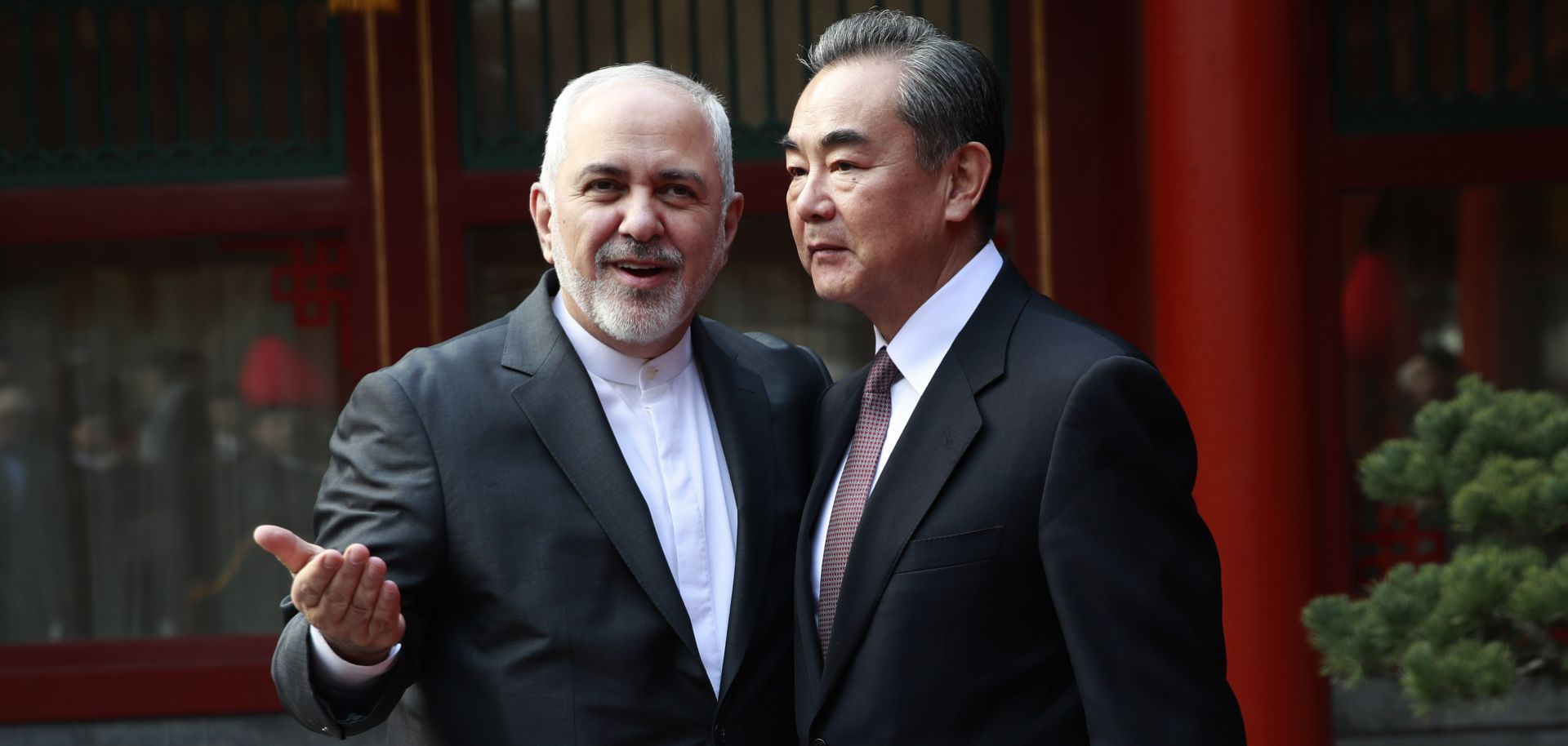GUIDANCE
The Iranian Foreign Minister's Resignation Reveals a Political Struggle in Tehran
Feb 27, 2019 | 15:12 GMT

Iran's Foreign Minister Javad Zarif (L) gestures as he speaks with his Chinese counterpart, Wang Yi, during a meeting in Beijing on Feb. 19, 2019. Zarif's attempts to quit have lifted the lid on political infighting behind the scenes in Tehran.
(HOW HWEE YOUNG/AFP/Getty Images)
Highlights
- Iran's president did not accept Foreign Minister Javad Zarif's resignation, but if he had, it would have had significant implications for the country's politics and foreign policy.
- Zarif's decision could be part of a political ploy designed to push back against his rivals and strengthen his ministry's role in key foreign policy matters.
- Up until this point, Iranian foreign policy has held steady, but if hard-liners get their way and supplant more moderate figures like Zarif, that could change.
Subscribe Now
SubscribeAlready have an account?
